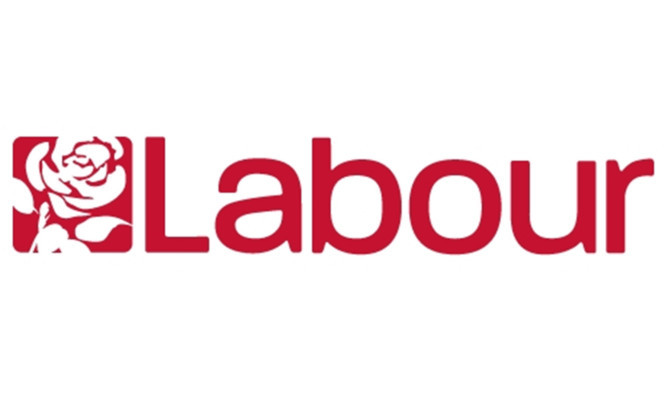The final line-up of candidates in the Labour leadership election will become clear when nominations close for the contest to succeed Ed Miliband at the helm of the Opposition.
Shadow health secretary Andy Burnham, shadow home secretary Yvette Cooper and shadow health minister Liz Kendall are all set for a place on the ballot paper having each secured more than the minimum 35 formal endorsements from MPs.
But with dozens still formally to declare their support, left-wing stalwart Jeremy Corbyn faces a wait to see whether he can make it past the threshold and into a series of public and televised hustings over coming weeks.
Mr Corbyn claimed to be 13 short as senior party figures including Lord Prescott and Frank Field urged MPs to back him to broaden the terms of the debate, even if they do not agree with his views.
Former deputy prime minister Lord Prescott said it is important for the “soul of the party” that Labour members are allowed to vote on Mr Corbyn’s platform.
Among those doing so over the weekend included former shadow justice secretary and would-be mayor of London Sadiq Khan.
The final tallies will be announced soon after the midday deadline. At last count, Mr Burnham was in front with 66, Ms Cooper had 56 and Ms Kendall 40.
Successful candidates will slug it out at the first live TV showdown on Wednesday, broadcast by BBC2’s Newsnight from Nuneaton – one of several target seats Labour failed to win in the general election that will host hustings.
Others, to be broadcast by Channel 4, Sky News, The Sunday Politics, BBC Radio 5 live and LBC radio, will come from towns such as Stevenage and Swindon.
The eventual winner – selected by a one-member-one-vote-system which replaced an electoral college that gave extra weight to politician and trade union choices – will be announced at a special conference on September 12.
Jim Murphy – who lost his seat at the general election and formally stepped down as leader of Scottish Labour at the weekend – will warn the party is at risk of failing to learn the lessons of its crushing defeat.
The former cabinet minister is to use a speech to criticise all the remaining candidates for declaring at a recent GMB union hustings that they would not share a pro-EU platform with David Cameron during the referendum.
Only shadow international development secretary Mary Creagh – who pulled out of the race on Friday – said she would be prepared to take such a united stand with the Conservatives in favour of the UK staying in the EU.
The party is at loggerheads over how to approach the campaign, but Mr Murphy will say those who argued Labour was all but wiped out north of the border because it was part of a joint campaign against Scottish independence were wrong.
“Our mistake was not to participate in a cross-party campaign that swamped a Labour campaign.
“Our mistake was to have no identifiable Labour campaign at all. Or more precisely to have one that lacked heart and soul.
“We need both a mobilisation of the Labour Party and the labour movement to stay in Europe and to play a central role in a non-partisan campaign.
“We cannot afford to leave (David) Cameron a space to be centre stage and to claim the credit for saving Britain from a catastrophe to which a large part of his party are handmaidens.”
Urging the party to learn lessons from failing to win “the easiest election that we will face before I am a pensioner”, he will add: “I look forward to a leadership debate that reflects the depth of our defeat rather than a ‘one more heave’ mindset.
“Let’s have a genuine contest of ideas about what we should learn for the future not just a lengthy mea culpa.”
The prominent Blairite will add: “If you exclude Tony Blair – which it would appear that I’m one of the far too few people in the party who don’t want to – it is almost 50 years since Labour won a big majority.”
As candidates continue to set out their pitches, Mr Burnham will use a speech to suggest the party could introduce a university student loans-style system to help young people move around the country to take up technical apprenticeships.
The bookies’ favourite, he will also suggest a centralised application system similar to Ucas for school leavers wishing to take up high quality apprenticeships and warn education policy has become stuck in the “Westminster bubble”, where the majority of people went to private school and university.
“This has left technical education in Britain as a low prestige, second class option. If we continue with this flawed approach, we will not build the highly skilled workforce that Britain needs to build a modern economy and compete in the world.”
Ms Cooper will promise new targets “to end child poverty within a generation” if the benchmarks set down in law for 2020 are missed as projected.
Bemoaning the absence of the issue from the party’s general election manifesto, she will also say Labour should legislate for the Office for Budget Responsibility to be required to assess the impact of budget measures on child poverty.
“The Tories have abandoned the 2020 child poverty target and are pushing more children into hardship instead,” she will say.
“We need a serious plan to tackle poverty pay, help parents into work, narrow inequality and support families throughout their lives.”
